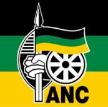The new ANC leadership is rushing headlong into a confrontation with the judiciary, national prosecuting authority, and the press. The resolutions adopted by the party's national conference, now ratified by its National Executive Committee (NEC), demand the dissolution of the Directorate of Special Operations (DSO) and the limitation of judicial independence. They also provide for a greater measure of state control over the media.
Although the ANC has now somewhat curtailed the powers of its own president, there is no sign of it pulling back from its efforts to bring all spheres of state and society under party direction. Institutions which have remained outside of party control, or which have slipped from its grasp, are now being targeted.
The resolution on Peace and Stability demands that "The DSO (Scorpions) be dissolved" and that the "members of the DSO performing policing functions must fall under the South African Police Services." It adds: "The relevant legislative changes be effected as a matter of urgency to give effect to the foregoing resolution."
The resolution on the Transformation of the State and Governance demands that the ANC press ahead with efforts to "transform" the judiciary. The resolution, which it says must be "urgently implemented by the end of the present term of government," provides for greater ministerial say over a far more centralised (and easily manipulable) court system.
It states that "Constitutional court should be the highest (apex) court for all matters, constitutional and non-constitutional, with the Supreme Court of Appeal as an intermediate court of appeal, with the proviso that this should not lead to undue delays in the hearings of appeals." Giving effect to this demand would require hastily altering the constitution which states that the SCA "is the highest court of appeal except in constitutional matters."
The conference also resolved that, "The administration of courts, including any allocation of resources, financial management and policy matters relating to the administration of courts" should be "the ultimate responsibility" of the Justice Minister. Rule-making meanwhile would be taken away from the courts, centralised, and processed through a "rule board." They would then have to be "approved by the Minister and Parliament."
Giving effect to this clause would require another amendment to the South African constitution. It currently states: "The courts are independent and subject only to the Constitution and the law," and "the Constitutional Court , Supreme Court of Appeal and High Courts have the inherent power to protect and regulate their own process."
The resolution also proposes a far greater concentration of power in the hands of the Chief Justice. It states that he (or she) "as head of the judicial authority, should exercise authority and responsibility over the development and implementation of norms and standards for the exercise of all judicial functions, such as the allocation of judges, case and court rooms within all courts in the court system." The way in which the ANC has previously shattered the independence of other state organs has been to put in place a centralised hierarchical system within the institution (where absent) and then to deploy a party loyalist to head it.
The resolution warns the judiciary to "respect the areas of responsibility of other arms of state and not unduly encroach on these areas."
These are the same proposals which occasioned a huge outcry when originally presented by the Mbeki government. The former Chief Justice, Arthur Chaskalson, commented [PDF] then that, "The steps which are proposed, in effect for the Minister to exercise greater control of the functioning of the judiciary are harmful, and I consider it essential that the evolving process of judicial independence which was carried out during the first ten years of the constitutional order should not be reversed."
The resolution on Communications and the Battle of Ideas signals a looming attack on press freedom in South Africa . It warns, ominously, that the current self-regulation of the press - as expressed in the form of the press ombudsman and press council - "is not adequate to sufficiently protect the rights of the individual citizens, community and society as a whole." It adds that the "right to freedom of expression should not be elevated above equally important rights such as the right to privacy and more important rights and values such as human dignity."
The resolution proposes the establishment of a "centralised government advertising unit which would enable government to utilise advertising economically." Such a body would, incidentally, greatly facilitate the withdrawal of government advertising from newspapers which displeased the ruling party.
It also moots the possibility of establishing a "Media Appeals Tribunal." This body would be a statutory institution, accountable to parliament, and would have "powers to adjudicate over matters or complaints expressed by citizens against print media."
Why though has the ANC decided to launch an assault on such key democratic institutions? What seems to be happening is that forces previously divided by the ANC's succession battle are re-combining.
On the one hand, the new ANC has a driving motive to protect its leader (and other cadres) from investigation and prosecution - and to punish the press for its earlier lack of respect for their cause. Conference resolved that "the ANC President shall be the candidate of the movement for President of the Republic." This is a decision which does not, on the face of it, accommodate the possibility of a guilty verdict in Jacob Zuma's upcoming corruption trial.
On the other hand, the ANC's historic desire to control and direct all centres of power remains unaltered. The conference "affirmed that the ANC remains the key strategic centre of power, which must exercise leadership over the state and society in pursuit of the objectives of the National Democratic Revolution."
Thus, the self-serving motivations of the Zuma-camp are merging with the pre-existing totalitarian aspirations of the ANC. If civil society does not take a stand the renewed force of these currents (combined) will, very possibly, wash away constitutional democracy in this country.

